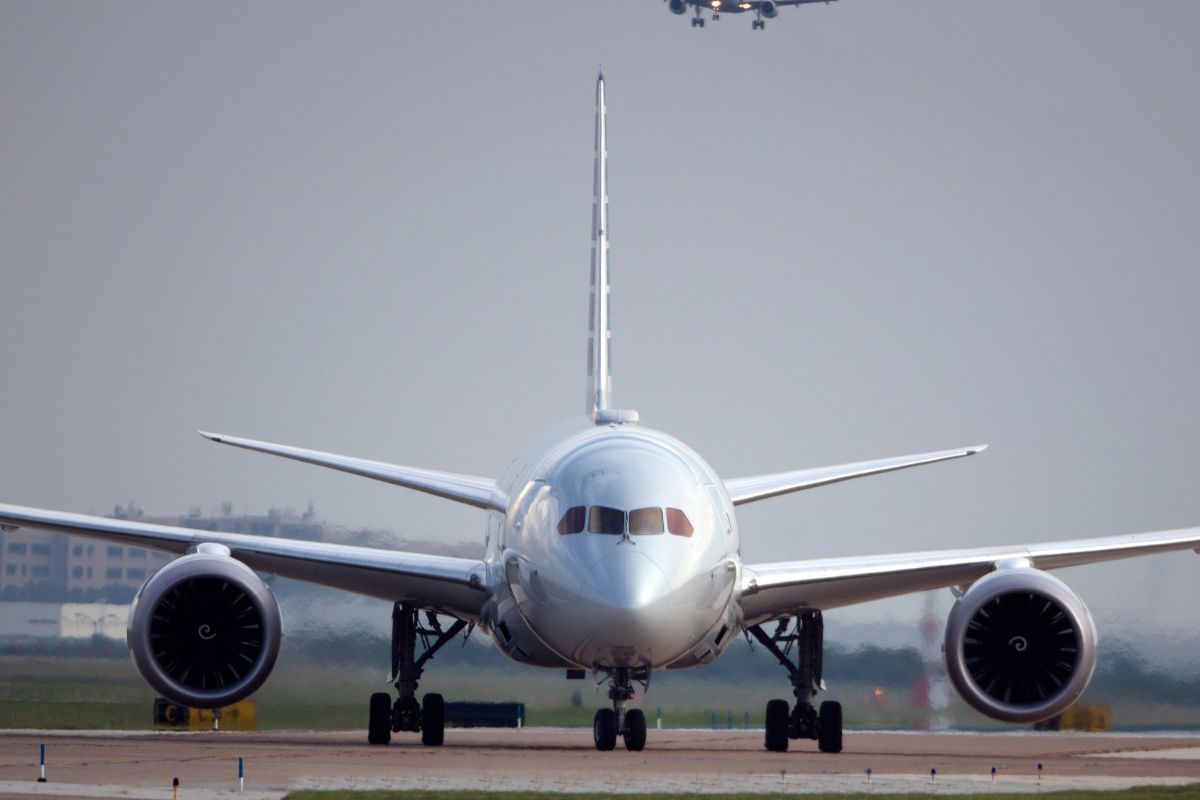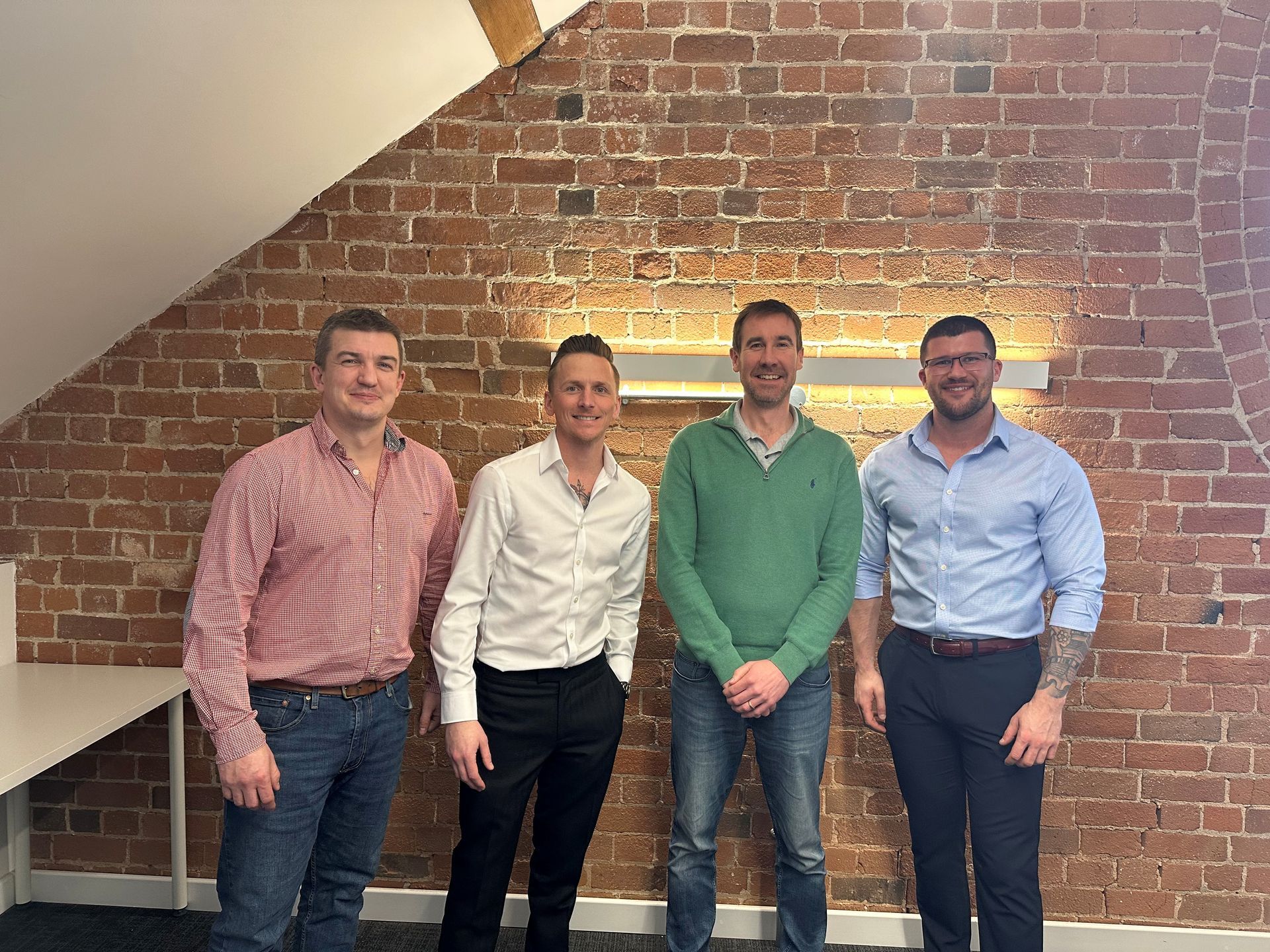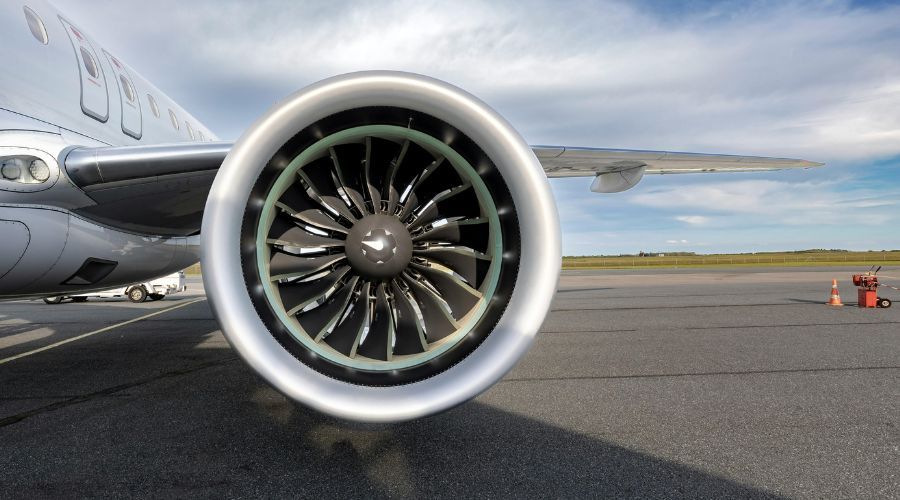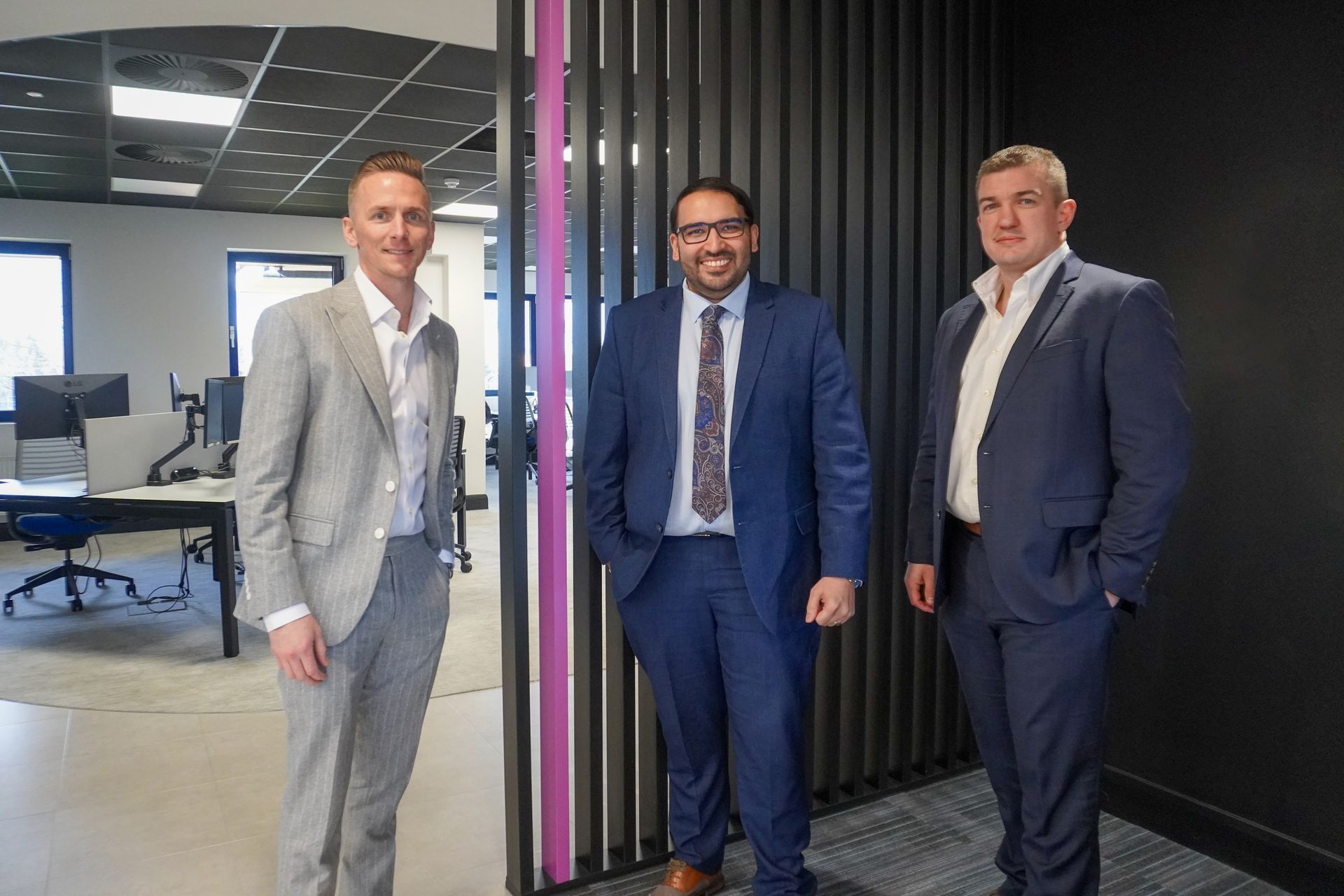The Biggest Challenges In The Aerospace Industry
As the UK aerospace industry continues to advance, it faces several issues that will shape its future.
So, what are the biggest challenges in the aerospace industry, and how can aerospace teams adapt to stay ahead?
In short, navigating geopolitical tensions, addressing a growing demand for skilled talent, and supply chain vulnerabilities are current issues facing the
aerospace industry.
The need for forward-thinking, adaptable talent has become even more crucial. As manufacturers navigate these challenges, a highly skilled workforce will be key to maintaining competitiveness and innovation in the global aerospace market.
We’ll explore the biggest challenges facing the aerospace industry below, including how aerospace teams can respond to preserve the future of UK aerospace.
1. Technological Disruption
The UK aerospace industry is heading towards a rapid wave of technological innovation, bringing exciting opportunities and significant challenges. As companies race to stay ahead, they’ll need to tackle several hurdles, particularly with shifting geopolitical tensions.
A key area of growth is 3D printing
(additive manufacturing), where UK firms are heavily investing. However,
potential US trade restrictions could limit access to crucial American intellectual property or machinery, slowing down the adoption of this advanced technology.
Artificial intelligence is another area transforming the industry, offering potential breakthroughs in everything from operations to design. But, with tighter export controls under Trump’s administration, UK companies might face challenges collaborating with US-based tech firms. This could delay the integration of AI into critical processes, limiting the competitive edge that AI offers.
Alongside these advancements,
research shows that cyber attacks rose by 131% between 2022 and 2023 across the aviation industry. As operations become more digitised, strong cyber security measures will be essential to protect innovations and maintain trust with partners and clients.
To stay competitive, UK aerospace firms will need to double down on innovation, investing in their own technology and seeking out partnerships beyond usual markets.
Aerospace recruitment will play a crucial role here, ensuring UK firms have the skilled workforce needed to meet these demands.

2. Bridging The Skills Gap
One of the most pressing challenges in the aerospace industry is the widening skills gap in the UK. Brexit’s impact has already made it more challenging to attract skilled talent from the UK, and the situation could become even more complicated following Donald Trump’s re-election.
Trump’s potential tightening of US immigration policies may restrict the flow of aerospace professionals from the US or allied nations, further limiting the talent pool for UK manufacturers.
Meanwhile, the rapid development of advanced technologies like AI and next-gen manufacturing is driving the demand for specialised skills that the
UK workforce is not fully equipped to meet.
For instance, an increasing need for
machine learning expertise to optimise aircraft performance. The UK’s
AI skills gap poses a threat to the sector’s ability to innovate and remain competitive.
To address these challenges, UK aerospace companies will need to invest in developing robust talent with
skills in demand for 2025.
This includes expanding domestic training initiatives, partnering with universities to align academic programs with industry needs, and creating apprenticeship schemes tailored to the requirements of next-generation technology.
3. Decarbonisation Pressures
Reducing the environmental impact of the UK aerospace industry is essential to its future. With the UK’s ambitious goals set out in the AGP’s Destination Net Zero Strategy, the sector is under increasing pressure to meet net-zero targets in aviation.
Net technologies are a significant part of the solution, from the development of lighter materials to innovations like
hydrogen-powered aircraft. The sector is also focused on improving existing technologies, such as reducing contrails, which contribute to global warming.
The Aerospace Technology Institute (ATI) is leading here, supporting hydrogen technology development, with test infrastructure, research and skills at the core of their strategy. This is part of a broader effort to decarbonise the sector, alongside initiatives like Sustainable Aviation Fuel (SAF).
SAF, derived from sustainable feedstocks, is seen as one of the most effective ways to reduce carbon emissions. The UK’s commitment to introducing a
SAF Mandate, requiring aircraft operators to use
10% SAF by 2030, is a major step in meeting decarbonisation goals.
As demand for these green technologies increases along the
UK’s drive towards decarbonisation, there will be a growing need for skilled professionals in fields like sustainable fuel development, hydrogen technology, and carbon-neutral aircraft design.
Recruiting and developing talent in these areas will be key to achieving the aerospace sector’s sustainability goals, while remaining competitive as the market advances.

4. Supply Chain Vulnerabilities
Another example of challenges facing the aerospace industry is the reshaping of the aerospace supply chain. The aerospace industry is currently facing issues in managing its supply chains as the demand for new aircraft continues to rise.
The global air traffic demand is forecasted to grow by 4.6% annually up to 2034, requiring 33,000 new aircraft. This growth is placing pressure on Original Equipment Manufacturers (OEMs) to ensure their supply chains can keep pace without compromising quality or cost efficiency.
Geopolitical tensions surrounding the US-China trade conflict and potential strains in US-UK relations under Trump’s re-election, add another layer of complexity.
Trump’s
‘America First’ agenda could prioritise domestic US suppliers over international collaborations, creating additional pressure on UK manufacturers.
New tariffs, export restrictions, or sanctions may disrupt the flow of essential aerospace components and raw materials.
Aerospace supply chains were already on shaky ground before recent disruptions.
Between 2020 and 2023, aerospace suppliers saw a 9% decline in financial health, while automotive and electronics sectors saw improvements or stability. This highlights the industry’s vulnerability to shocks and the need for stronger, diversified supply chains.
In response, UK aerospace manufacturers may need to strengthen domestic supply chains, explore new trade partnerships, and renegotiate existing agreements to prepare for US policy shifts.
Equally important will be recruiting professionals with supply chain management expertise, who can guide the sector through these challenges.
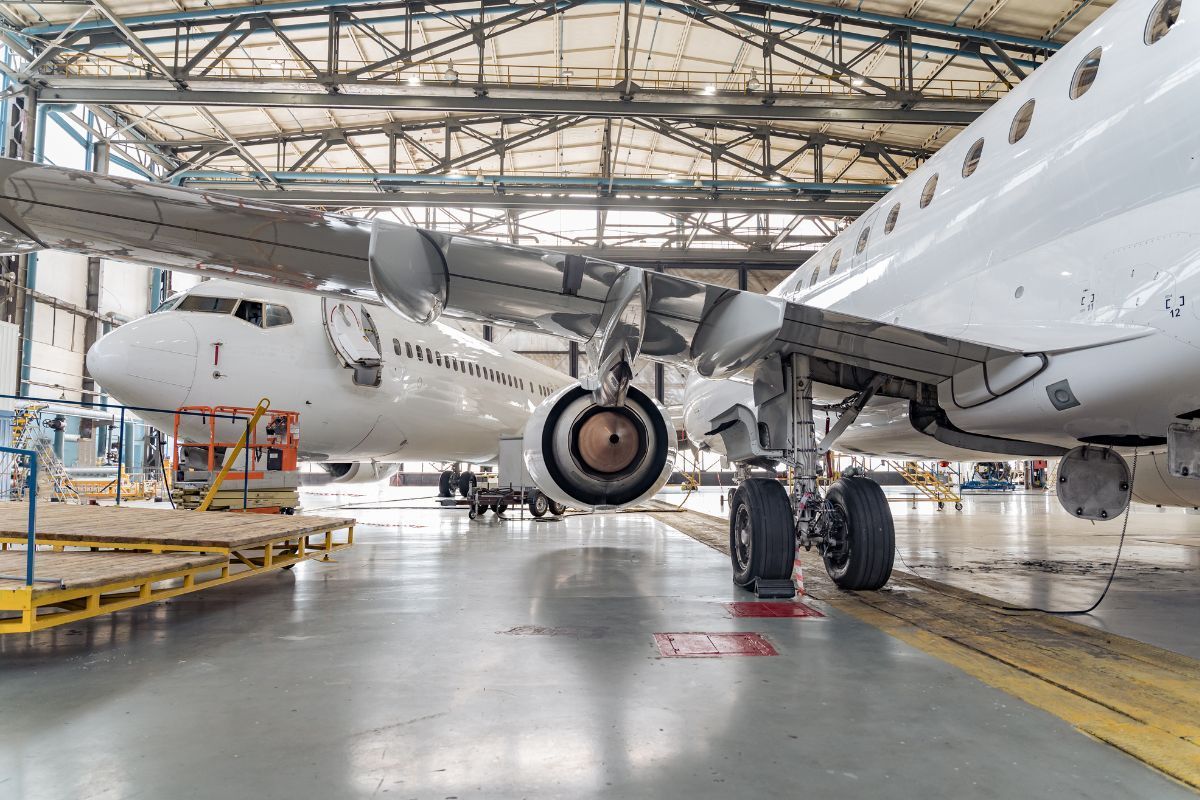
How Can We Help
We hope that our post on the biggest challenges in the aerospace industry helps shed light on the issues the sector is facing today.
At
Meritus, we connect aerospace teams with talented professionals to help them remain competitive as the industry changes.
Submit a vacancy with us and let’s get started strengthening your team.
Quick links
Contact us
info@meritustalent.com
Head Office:
Anchor Court,
Keen Road,
Cardiff,
CF24 5JW
A Recolution Group Brand Meritus Talent ©


